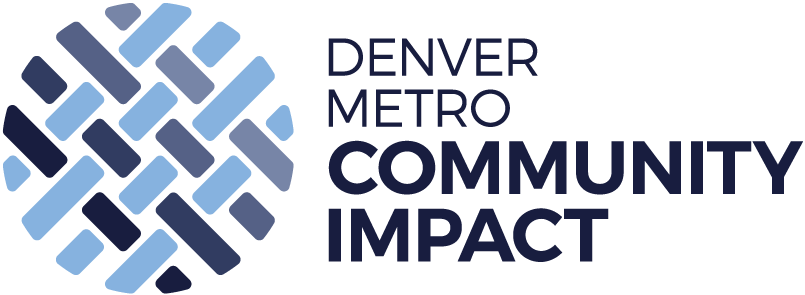Financial Education Action Committee Meetings #3-#4
Action Committees are partner-driven action-oriented meetings that focus on the details of creating systemic change in the neighborhood.
On March 4th and 16th, the Financial Education Action Committee held its third and fourth meetings. The action committee follows a continuous improvement process that will result in the implementation of evidence-based strategies, designed to eliminate financial education root causes, in Park Hill.
Action committee members consist of individuals who Live, Learn, Work, Play, or Worship in Park Hill. Over the past several weeks, our membership has grown. Below is our most current list of members:
Adnan Syed, volunteer and former Impact Manager with PHCI
Marcus Pope, House of Hair and House of Hope Christian Ministries
Jasmine White, Communication Studies Major and Advisory Council Member
Justin Petaccio, resident and Spire Financial
Rashon Manning, FirstBank
Patricia Ochoa, DPS PREP Academy High School
Toi Massey, ANM Innovative Solutions, LLC and The JEKL Foundation for STEAM Education
Jeff Shanahan, Sexy Pizza
Kyle Peters, Sexy Pizza
Shawn Young, Financial Health Institute
Chelese Ransom, Financial Health Institute
Cherese Scott, Partner Colorado Credit Union
Billy Williams, New York Life
Olivia Lincoln, Heart and Hand Center
Brianna Benevides, Heart and Hand Center
Cami Tam, Heart and Hand Center
Cordelia Randall, CrossPurpose
Danny Martinez, APEX Business Consulting
Narcy Jackson, Athletics and Beyond
Joseph Dominguez, Love Thy Neighbor (Real Estate and Community Advocates)
After brainstorming financial challenges residents and small businesses in Northeast Park Hill face (step 2 in the process - see meeting #2), the action committee identified the following three (3) root causes (this is not comprehensive list of all root causes):
Stigma - Social stigma surrounding financial literacy prevents local, small business owners and residents of Northeast Park Hill from gaining financial stability and success.
Training and Resources - Financial education training and resources are not readily available or relevant to local, small business owners and residents of Northeast Park Hill.
Financial Products/Services - Local, small business owners and residents of Northeast Park Hill are not provided with financial opportunities by traditional financial institutions due to perceived high risk.
These root causes laid the foundation in conducting research (step 3 in the process) intended to illuminate evidence-based strategies designed to eliminate the root causes. The committee is currently exploring the following strategies and approaches to understand more about them:
Housing Coaching/Counseling/Navigation - Outreach/Communication of Accessibility of Housing
Purposefully going into communities and communicating all options/programs available to Northeast Park Hill, real-time training, and/or
Connecting individuals with the best housing programs to meet their situation and needs
Family Stabilization Plan (FSP) - a program “offered in partnership with a network of financial institutions, social service providers, faith-based groups, churches, state and city government agencies and other community groups”. “The FSP program offers financial interventions that rely on a value-based applied learning delivery model. This value-based applied learning delivery model approach to financial planning is based on what is of importance to individual participants. FSP generally serves low-to moderate income families, primarily African/African American heritage, [who] reside in underserved communities. At the core of this delivery model is a combination of two vital parts; short term financial education and long term one on one coaching which typically last up to two years. This allows for an in-depth long-term comprehension of materials in a culturally relevant manner.”
Peer Financial Counseling (small businesses and individuals)
Group Financial Counseling (families, small businesses, and individuals)
Social Ecological Model as a framework for Financial Education - “mediating individual behavior change through the influence of interpersonal, organizational, community, and policy environments for sustained success”
Train-the-trainers Model using “Your Money, Your Goals” financial empowerment toolkit designed by the Consumer Financial Protection Bureau
End users - families, small businesses, and individuals
Audience - religious organizations, community focus groups, grassroots organizations, community-based organizations (e.g., WorkNow, Cross Purpose, Heart and Hand, etc.), government/community leaders, and school/parent groups
Youth Education AND Parental Expectations Strategies (possible partners: DPS, Young American Bank, DRIP Accounts, Heart and Hand, Financial Institutions, Athletics and Beyond/Club Z Tutoring, etc.)
If YOU have or anyone you know has experience executing these evidence-based strategies and/or could support our work in implementing these evidence-based strategies, please contact Daniel Archuleta at Daniel@ParkHillCI.org or 720-580-0198. Our next meeting is Thursday, April 2, 2020, 1:00-2:30 PM, via Google Hangouts.

